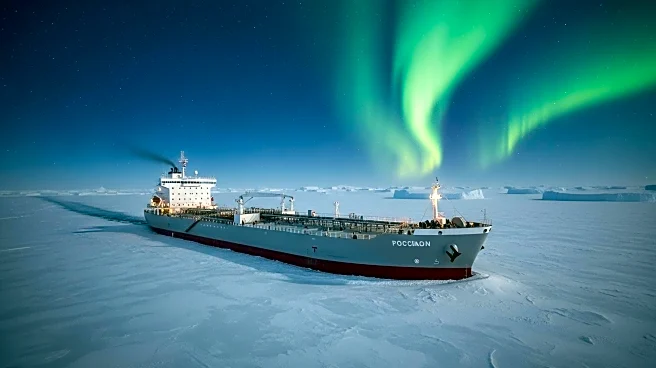What is the story about?
What's Happening?
Russia is set to deliver oil to Brunei through the Northern Sea Route (NSR) for the first time this September, marking a strategic expansion of its export pathways. The NSR, which offers a shorter and less costly alternative to the Suez Canal, has primarily been used for shipments to China due to its proximity to Russia's Far East. The tanker Latur, carrying Arctic heavy ARCO oil supplied by Gazprom Neft, is en route to Brunei's Muara port. This move comes as Russia seeks new buyers following Western sanctions imposed in 2022, which have pushed Moscow to diversify its export destinations.
Why It's Important?
The utilization of the Northern Sea Route for oil exports to Brunei signifies Russia's strategic efforts to enhance its global trade reach amidst geopolitical tensions and sanctions. This development could impact global oil markets by introducing new trade routes and potentially altering supply dynamics. For Brunei, increased imports of Russian oil may offer economic benefits and energy security, while for Russia, it represents a critical step in mitigating the effects of Western sanctions. The NSR's role in facilitating faster and more efficient trade could also influence future shipping and trade policies in the Arctic region.
What's Next?
Russia is expected to continue boosting shipments via the Northern Sea Route, although challenges such as high costs and regulatory approvals from Rosatom remain. The expansion of NSR usage may prompt other countries to explore similar routes for trade, potentially leading to increased Arctic shipping activity. Stakeholders, including energy companies and shipping firms, will likely monitor the success of these initial shipments to Brunei as a gauge for future investments and partnerships. Additionally, geopolitical dynamics may evolve as countries assess the strategic implications of Arctic trade routes.

















